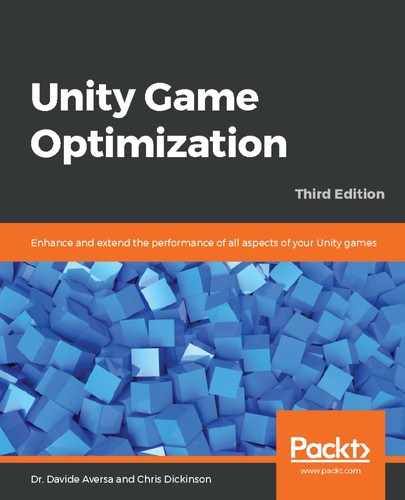The .NET library offers a huge amount of common functionalities that help to solve numerous problems that programmers may come across during day-to-day implementation. Most of these classes and functions are optimized for general use cases, which may not be optimal for a specific situation. It may be possible to replace a particular .NET library class with a custom implementation that is more suited to our specific use case.
There are also two big features in the .NET library that often become big performance hogs whenever they're used. This tends to be because they are only included as a quick-and-dirty solution to a given problem without much effort put into optimization. These features are LINQ and regular expressions.
LINQ provides a way to treat arrays of data as miniature databases and perform queries against them using a SQL-like syntax. The simplicity of its coding style and complexity of the underlying system (through its usage of closures) implies that it has a fairly large overhead cost. LINQ is a handy tool, but is not really intended for high-performance, real-time applications, such as games, and does not even function on platforms that do not support JIT compilation, such as iOS.
Meanwhile, regular expressions through the Regex class allow us to perform complex string parsing to find substrings that match a particular format, replace pieces of a string, or construct strings from various inputs. Regular expressions are very useful tools but tends to be overused in places where they are largely unnecessary or in so-called clever ways to implement a feature such as text localization, when straightforward string replacement would be far more efficient.
Specific optimizations for both of these features go far beyond the scope of this book, as they could fill an entire book by themselves. We should either try to minimize their usage as much as possible, replace their usage with something less costly, bring in a LINQ or regex expert to solve the problem for us or do some Googling on the subject to optimize how we're using them.
